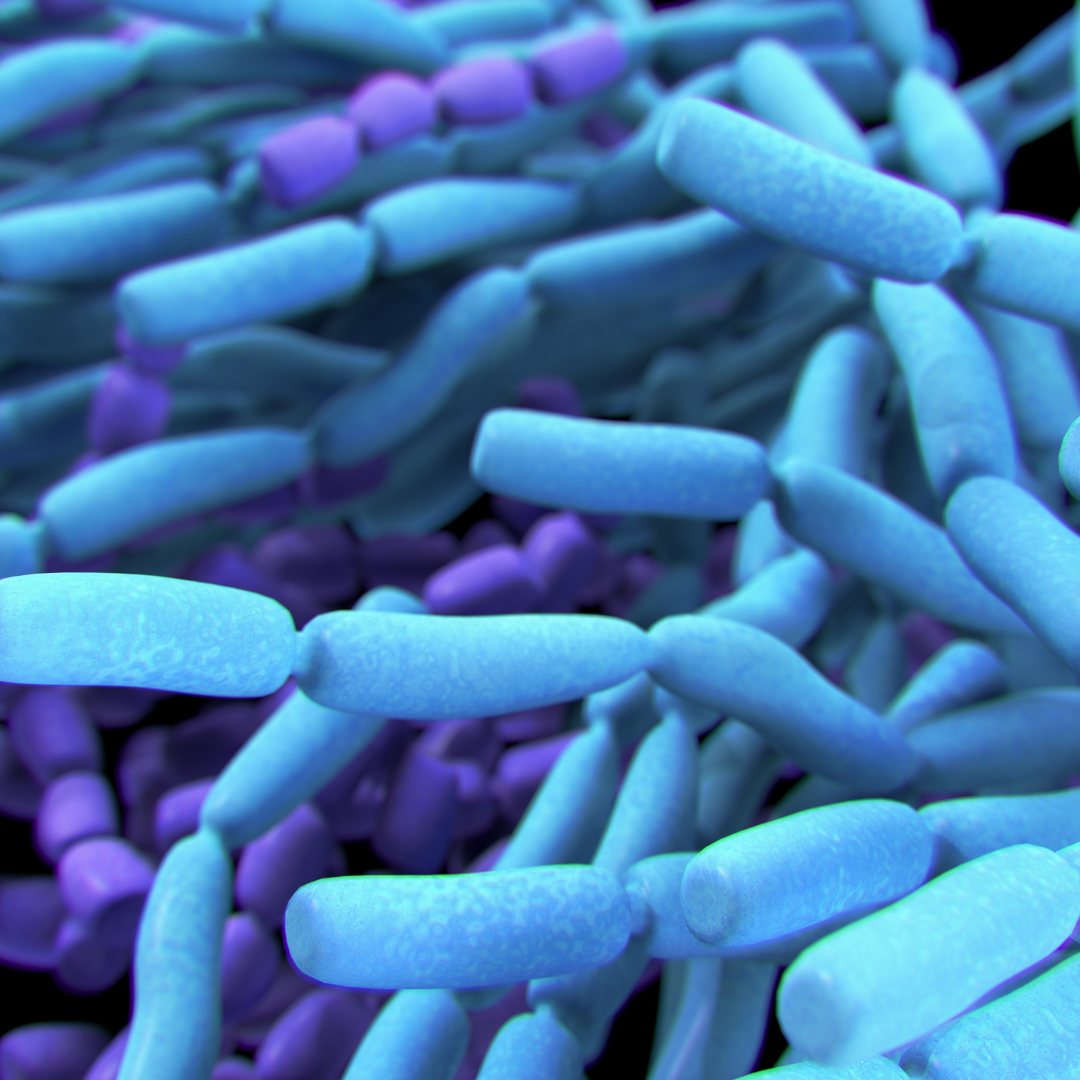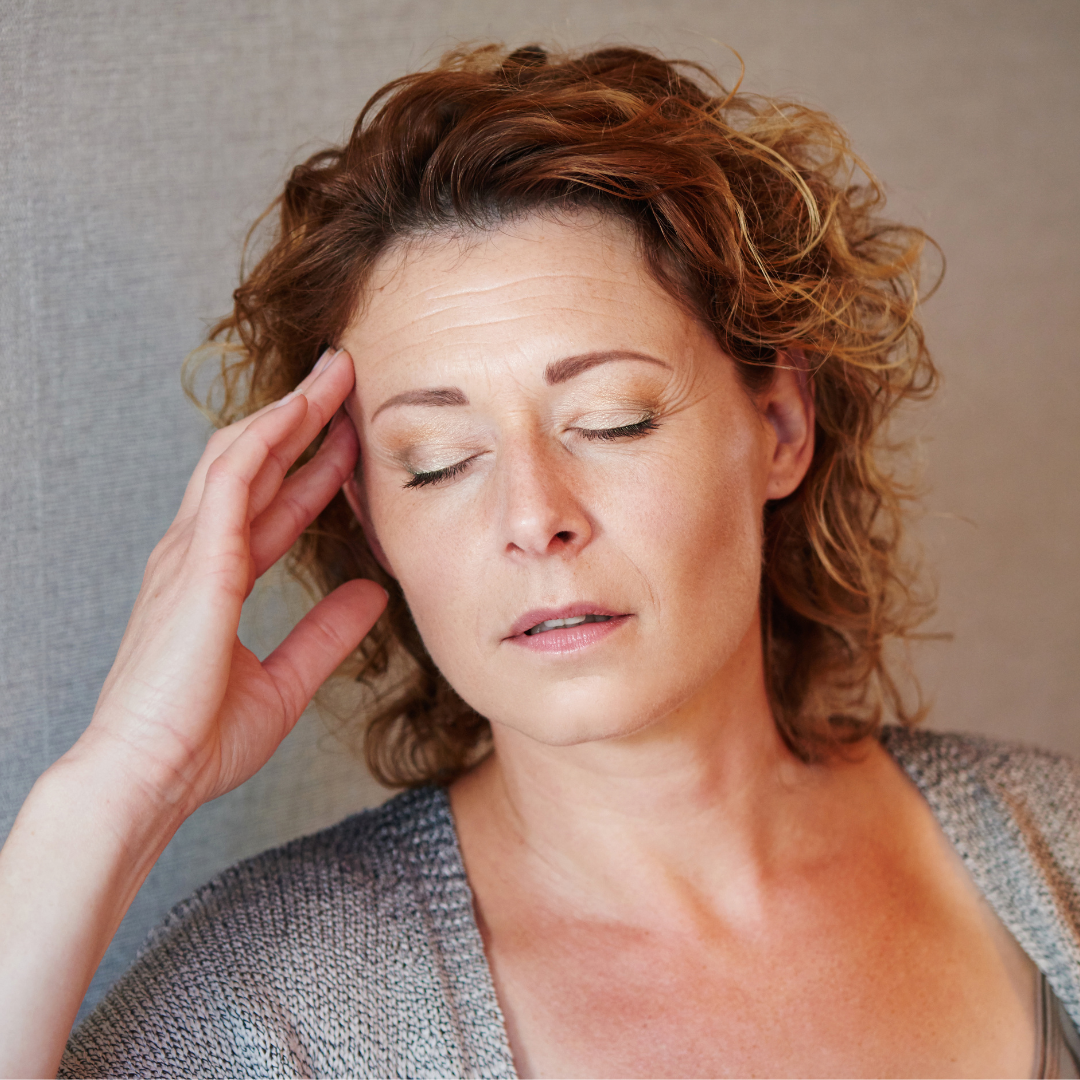
The Role of Vaginal Microbiome in Vaginal Infections
It’s easy to shy away from talking about intimate wellbeing, particularly when it comes to vaginal infections. However, intimate wellbeing has never been more important, particularly given that genitourinary symptoms of menopause, including vaginal dryness, increase the risk of vaginal infections.
One way to support vaginal health in menopause is through caring for your vaginal microbiome.
What is the vaginal microbiome?
Just as the gut has its own sensitive ecosystem of bacteria and other microbes, so does the vagina. The vaginal microbiome consists largely of billions of bacteria, but also includes other microbes, such as yeasts and viruses. Exact compositions will vary from person to person.
Approximately 95% of a healthy vaginal microbiome is made up from a genus of bacteria called Lactobacillus. Within each genus, there are different species of bacteria, and each species can be further categorised into strains. Each species has many strains, though not all strains are found within the vagina – some prefer to live in the gut as each strain has different properties, and thrive and work better in different parts of the body.
How do vaginal infections occur?
The vaginal microbiome is very sensitive and when bad bacteria disrupts the balance of the vaginal microbiome, and vaginal pH exceeds 4.5, vaginal infections can occur. Bad bacteria can make their way into the vaginal microbiome through sex, eating a high sugar diet, using perfumed intimate washes and even as a result of chronic stress.

What vaginal infections might occur?
Two infections are particularly common:
- Bacterial Vaginosis (BV) is the most common vaginal infection in women of reproductive age. It occurs when harmful bacteria overgrow in the vaginal microbiome. Common symptoms include a strong, unpleasant smelling vaginal discharge, which has become grey and watery. Though it’s important to note that not every woman will experience symptoms.
- Thrush is another common vaginal infection caused by unfriendly yeasts from the Candida family. Candida species of yeast usually live harmlessly within the vaginal microbiome and thrush only becomes a problem when Candida yeast overgrows. Symptoms of vaginal thrush include odourless, creamy white ‘cottage cheese-like’ vaginal discharge, itching and irritation of the vulva or entrance to the vagina, stinging during urination and painful sex.
How does menopause affect the risk of vaginal infections?
Within the vaginal microbiome, oestrogen is responsible for influencing levels of glycogen. Glycogen is a type of carbohydrate that friendly Lactobacilli ferment in order to grow and thrive. Maintaining good levels of Lactobacilli helps to prevent vaginal infections.
With menopause, oestrogen levels decline resulting in reduced levels of glycogen. As a result, Lactobacilli levels are reduced and less lactic acid is produced, increasing vaginal pH. Not only does this increase the risk of developing vaginal infections, but it may also cause vaginal dryness.

How does a healthy vaginal microbiome protect against vaginal infections?
Maintaining the sensitive ecosystem of the vaginal microbiome is crucial to preventing vaginal infections. When the delicate balance of the vaginal microbiome is disrupted, by both bad bacteria and changes in pH, vaginal infections become more likely.
How can I support a healthy vaginal microbiome?
There are several factors that can affect vaginal microbiome – some can be controlled; others not so much.
Antibiotics
While antibiotics have been revolutionary in treating bacterial infections, including vaginal infections, they don’t discriminate between good and bad bacteria. If you’ve taken antibiotics in the past, this may have disturbed the balance of your vaginal microbiome, increasing risk of vaginal infections. Antibiotics can also disrupt the balance of gut microbiome, and encourage bad bacteria to grow. These bad bacteria may travel from the gut to the vagina, causing a vicious cycle of infections.
Antibiotics should be taken if needed, but a probiotic during and after a course of antibiotics may help to minimise disruption of the vaginal microbiome. Look for a probiotic that contains bacteria strains that have been scientifically tested alongside antibiotic use.
Eating well
Eating a healthy, balanced diet that limits added sugar can help prevent bad bacteria from overfeeding and growing.
Intimate Hygiene
The vagina is self-cleaning, and doesn’t need the help of harsh soaps or cleansers. In fact, it doesn’t need washing. Always use warm water and, if desired, unperfumed soap to wash around the vulva. Avoid perfumed intimate washes, products or toilet paper, to avoid disrupting the balance of your vaginal microbiome.
Periods
If you’re perimenopausal, fluctuating hormones through the menstrual cycle can disrupt the balance of the vaginal microbiome. In particular, during your period, vaginal pH increases (making the vagina less acidic) and friendly Lactobacillus bacteria decrease in number. Both of these changes create less favourable conditions for vaginal microbiome, increasing the risk of vaginal infections. However, once bleeding stops, these changes reverse and balance is restored.
Probiotics
Some women find a probiotic supplement supports their vaginal microbiome. There are many probiotic supplements available, but not all are of equal quality, and nor do they all target the same area. Look for a probiotic supplement that specifically supports the vaginal microbiome or the specific function you’re looking for.
Optibac’s probiotic range includes a ‘For Women’ product, containing Lactobacillus reuteri RC-14® and Lactobacillus rhamnosus GR-1® which have evidence to support women’s intimate wellbeing. For more information on Optibac probiotics, including usage, suitability and storage, take a look at their frequently asked questions.
Sex
Unprotected sex can introduce new microbes into the vagina, which may trigger an immune response resulting in inflammation. This new bacteria may also disrupt the delicate balance of vaginal microbiome, causing less favourable conditions for friendly Lactobacillus bacteria to grow. When Lactobacilli reduce in number, the risk of vaginal infections increases.
Some sexual lubricants may contain ingredients that have the potential to disrupt the balance of the vaginal microbiome. Flavourings and scents may contain sugars, which can promote the growth of yeast infections, such as thrush. Lubricants containing glycerine and glycerol could also damage and dehydrate the vaginal epithelium (the inner lining of the vaginal wall).
If using lubricants, choose one that is natural and that has a pH value of around 3.8-4.5, which is similar to the pH of the vagina. Additionally, ensure you urinate immediately after sex, and gently wash the genital area (not the vagina) with warm water, as soon as possible.
Stress
Just as stress can affect gut microbiome, it can affect vaginal microbiome too. Long periods of stress stimulate production of the hormone cortisol. Within the vagina, cortisol affects levels of glycogen, which friendly Lactobacilli ferment to grow and thrive. If Lactobacilli aren’t fed properly, levels within the vagina will drop, increasing the risk of vaginal infections.
Having a few stress management tools that you practice regularly will help reduce the likelihood of chronic stress. Stress management tools may include doing a hobby you enjoy, taking a bubble bath or going for a walk.
In Summary
A healthy vaginal microbiome is crucial in helping to prevent vaginal infections, such as bacterial vaginosis and thrush. However, vaginal microbiome is sensitive and can be affected by many factors, including monthly menstrual cycles, sex, intimate hygiene, stress and even antibiotics. However, you can support your vaginal microbiome with good intimate hygiene, managing stress levels, eating well and also with probiotics specifically targeted to vaginal health.
This blog has been written in collaboration with Optibac Probiotics, a UK based business which specialises entirely in live cultures. Optibac pride themselves on strains that have been scientifically researched and clinically trialled. Their expertise allows them to select specific strains based on scientific research, giving their customers a natural product that’s right for them. Each strain undergoes rigorous testing to ensure it is stable at room temperature, survives stomach acidity, reaches the gut alive, and adheres to the gut wall lining. Optibac Probiotics have formulas suitable for every life stage, including menopause. With 15 different supplements in the range, all free from additives, preservatives and colourings, and products that are suitable for vegetarians or vegans also.

References
- Probiotics Learning Lab (2021) Probiotics & Bacterial Vaginosis. Available at: https://www.optibacprobiotics.com/uk/learning-lab/in-depth/womens-health/lactobacillus-probiotics-and-bacterial-vaginosis
- Probiotics Learning Lab (2020) Which probiotics help with thrush? Available at: https://www.optibacprobiotics.com/uk/professionals/latest-research/female-health/which-are-best-probiotics-for-thrush
- NHS (2020) Thrush in men and women. Available at: https://www.nhs.uk/conditions/thrush-in-men-and-women/
- Probiotics Learning Lab (2021) Best Women's Supplements For You. Available at: https://www.optibacprobiotics.com/uk/learning-lab/in-depth/womens-health/supplements-for-women-which-do-you-really-need
- Probiotics Learning Lab (2021) All About Your Vaginal Flora. Available at: https://www.optibacprobiotics.com/uk/learning-lab/in-depth/womens-health/vaginal-microbiome
www.harleystathome.com | Instagram @harleystreetathomemenopause
Facebook: Search Harley Street at Home: Diagnosis, Symptoms & Treatments or Harley St at Home: Lifestyle, Self-Care and Lifestyle to join our private community



